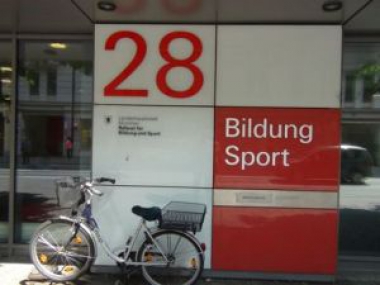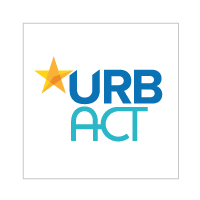City of Munich: first good practice – counsellors at school and the advisory centre
Edited on
19 February 2015In Munich parental work starts very early, in the kindergarten. Teachers and counsellors at school actively keep contact to parents. School system makes help necessary with transitions and decisions of every kind, so there’s a continuous contact between parents and schools showing alternatives, ways to further education and give advice starting into working life. Due to the big influence parents have on job decisions, it is important to start as early as possible.

Depending on the qualification adolescents leave school at the age of 15/16 and either go to further education schools or enter the job market as applicants. Every school provides specially qualified teachers who studied this subject additionally and therefore are experts accompanying pupils and parents. For further problems there are also school psychologists available. Further institutions are for example the advisory centre of the city of Munich where a team of teachers whose responsibility is to advise people about school problems or alternatives (every kind of school, every kind of age – secondary schools, vocational schools, further education schools, studies,…) and specialists for further education who offer help to find alternatives concerning education, better/ different qualifications and re-entry into working life. Special advisors provide help for people with handicap or for the question of inclusion. Additionally there are psychologists, and the advisor centre international who advise in 16 different languages, so that many people with migration background can get help in their native tongue. One big part is the cooperation with the adult education centre of Munich.
What was the need/ problem to address? The context?
The variety and complexity of the German/ Bavarian school system makes people confused and unsure so they seek for help. The advisory centre is not known to all people who need help. We work preventative, but we don’t find people or youth a job. There are many different institutions and people need to find out the right one. Moving to a different state makes the problem bigger for many families because of the various school systems and curriculums.
Who formulated the need/ problem/ challenge?
Parents often come to us with their children because they have problems at school or don’t know how to get a qualification. They are often in despair and were given the information to contact us. Many don’t really know the opportunities the system offers. Sometimes it’s about school laws and duties. Prevent 2013 Munich best practice
Who initiated the project/practice?
The state of Bavaria is responsible for the education of teachers and their qualifications. The City of Munich installed the municipal advice centre in cooperation with the Munich adult education centre.
Who is the target group/end user?
It’s an offer for everyone who needs help concerning current or future decisions no matter what age group, nationality they are or qualification/ education they have.
How does it work?
At every school there is a team with special qualifications - school psychologists (second school subject) and counsellors (2 years study with graduation) who are also teachers. They actively keep contact to parents and pupils and help them in the jungle of transitions and decisions. It contains vocational counselling, help with psychological or performance problems, advice concerning transitions or further education. There are also other institutions who can give further help like the municipal advice centre which contains all these specialists as well as experts on further education (for adults, too), getting qualifications and an international branch which gives advice in 17 different languages for people with migration background.
Challenges along the way?
Problems within the family hinder cooperation between school and parents. For people with migration background it’s hard to understand the school system, there is often a culture clash and language is an obstacle, too.
How were they tackled/ solved?
Teachers try to keep contact actively. There are institutions which can help with languages and the school systems (international advice centre – see above) and can be invited for parents’ evenings, too. For dispelling fear or doubts a tried and tested method is visualization.
Why do you consider it to be a "good practice"?
It starts early and actively at school and continues in adulthood. Parents and pupils are accompanied on their way by specialists throughout their schooldays and beyond. Additionally there are institutions with special, additional further qualifications that offer help in many directions. Teachers at school are always available, are close to the pupils’ concerns and problems and have a better access to their pupils. Advice is practically oriented and it’s easier to establish a basis of trust as they are bound to maintain confidentiality. Another possibility is to send clients to various institutions to give them support for their individual problems. One important aspect is that it’s free of charge and open to everyone. Meanwhile it’s a big network with various organizations that profit from each other.
What is the evidence? Evaluations?
Clients give a positive feedback. Many pupils/ parents come to school events and give positive feedback mostly about successful transitions or the results of the given advice. At the advice centre we have feedback sheets, which are 99% full of praise. More and more people use these offers and are satisfied with the results as they feel taken seriously.
 Submitted by URBACT on
Submitted by URBACT on




